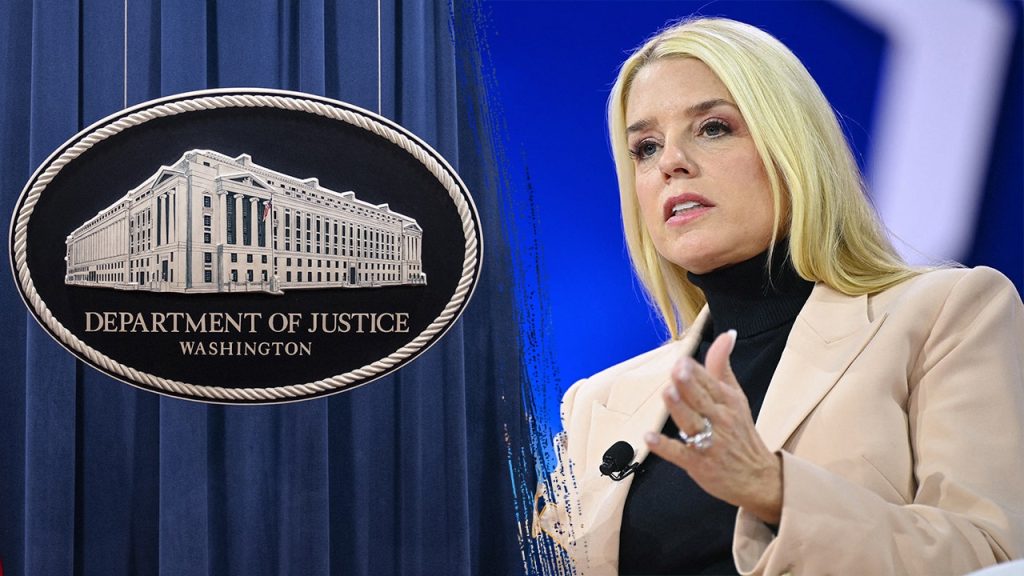The American Accountability Foundation (AAF), a conservative research group, has penned a letter to President-elect Trump’s Attorney General nominee, Pam Bondi, and his nominee for Assistant Attorney General for Civil Rights, Harmett Dhillon, urging them to dismiss several employees within the Department of Justice’s (DOJ) Voting Section of the Civil Rights Division. The AAF alleges these individuals are “woke radical leftists and donors” whose ideologies clash with Trump’s agenda and, therefore, cannot be entrusted with upholding election integrity. The letter specifically targets five DOJ employees: Janie Sitton, Catherine Meza, Daniel Freeman, John “Bert” Russ IV, and Dana Paikowsky. The AAF’s broader concern revolves around what they perceive as a “deep state” threatening democracy within the country. They argue that these individuals’ past actions and affiliations demonstrate a commitment to leftist ideologies, thereby disqualifying them from serving in the DOJ.
The AAF’s accusations against these individuals are multifaceted. Janie Sitton is criticized for her advocacy of “transgender jurisprudence,” which the AAF interprets as an attempt to dismantle traditional societal norms regarding gender. They cite a 2000 article authored by Sitton, where she questioned the practice of assigning gender to newborns based on sex, as evidence of her radical views. Dana Paikowsky is targeted for her alleged ties to Soros-linked organizations and her advocacy for prisoner voting rights. The AAF points to her previous employment with the Open Society Foundations and the Campaign Legal Center (CLC), both of which have received funding from George Soros, as evidence of her leftist leanings. They further cite a 2019 law review article where Paikowsky discusses how inmate votes could potentially sway election outcomes.
Catherine Meza, an attorney in the voting division, draws criticism for her past support of gun control while serving as chief counsel for the NAACP. The AAF also alleges that Meza accused individuals of voter intimidation in 2020 for not wearing masks or adhering to social distancing guidelines. John “Bert” Russ IV is singled out for filing a 2021 complaint against Georgia’s election integrity initiatives. The AAF contends that the complaint, which challenged restrictions on unsolicited absentee ballots, voter ID requirements, and the provision of food and drinks at polling places, demonstrates a disregard for election integrity. The AAF did not provide specific details about Daniel Freeman in their letter.
This latest action by the AAF follows a similar pattern of targeting individuals they deem ideologically opposed to the Trump administration. Just the week prior, the group compiled a list of “woke” senior officers within the Pentagon, calling for their dismissal if Pete Hegseth were to be confirmed as its leader. This reveals a broader strategy by the AAF to influence personnel appointments within the government, aiming to install individuals aligned with their conservative agenda. The AAF promises future releases of information on other “problematic staff” within the DOJ, suggesting a sustained effort to reshape the department’s personnel.
The AAF emphasizes the importance of restoring public trust in election integrity and a neutral civil service. They argue that achieving this requires removing these “woke radical leftist donors” and replacing them with “America-first attorneys” who will implement the agenda the American people voted for in November. The letter thus frames the issue as a matter of upholding the democratic will of the people and ensuring that the DOJ functions in a non-partisan manner. By portraying these individuals as ideologically driven, the AAF seeks to justify their removal as a necessary step to protect the integrity of the electoral process.
The DOJ’s Voting Section of the Civil Rights Division, which is responsible for enforcing federal voting rights laws, has yet to respond to the AAF’s letter or the allegations made against its employees. The individuals named in the letter have also not publicly commented on the AAF’s accusations. This silence leaves open the question of how the DOJ and the named individuals will respond to the pressure exerted by the AAF. The outcome of this situation could have significant implications for the future direction of the DOJ and its approach to enforcing voting rights under the Trump administration. The AAF’s actions highlight the ongoing struggle over ideological influence within government institutions and the debate over what constitutes a neutral and impartial civil service.










